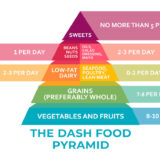The Benefits of Plant-Based Diets for Cardiovascular Health

Introduction
Plant-based diets have gained popularity for their potential health benefits, particularly in reducing the risk of cardiovascular diseases (CVD). Emphasizing fruits, vegetables, whole grains, legumes, nuts, and seeds, these diets can improve heart health and overall well-being. This article examines the advantages of plant-based diets in promoting cardiovascular health.
Cardiovascular Benefits of Plant-Based Diets
Lowered Blood Pressure: Consuming a diet rich in plant-based foods is associated with reduced blood pressure levels, decreasing the strain on the cardiovascular system.
American Journal of Clinical Nutrition
Improved Cholesterol Levels: Plant-based diets can lead to lower levels of low-density lipoprotein (LDL) cholesterol, commonly known as “bad” cholesterol, thereby reducing the risk of plaque formation in arteries.
Reduced Inflammation: High intake of fruits and vegetables provides antioxidants and phytochemicals that combat inflammation, a key factor in the development of CVD.
Enhanced Weight Management: Plant-based diets are typically lower in calories and high in fiber, promoting satiety and aiding in weight management, which is crucial for heart health.
Improved Blood Sugar Control: Emphasizing whole, plant-based foods helps regulate blood sugar levels, reducing the risk of type 2 diabetes, a significant risk factor for CVD.

Supporting Evidence
A meta-analysis of randomized controlled trials found that plant-based diets significantly improve markers of cardiovascular health, including cholesterol levels and body weight.
Another study indicated that higher consumption of plant-based foods is associated with a lower risk of coronary artery disease and stroke.
American Journal of Clinical Nutrition
Research also suggests that plant-based diets contribute to better cardiovascular outcomes across diverse populations.
Practical Tips for Adopting a Plant-Based Diet
Start Gradually: Introduce more plant-based meals into your diet by designating specific days for plant-based eating or substituting plant-based alternatives for animal products.
Diversify Your Plate: Ensure a variety of fruits, vegetables, whole grains, and legumes to obtain a broad spectrum of nutrients.
Choose Whole Foods: Focus on minimally processed foods to maximize nutrient intake and health benefits.
Monitor Nutrient Intake: Pay attention to nutrients like vitamin B12, iron, and omega-3 fatty acids, which may require supplementation or careful dietary planning in plant-based diets.
Seek Professional Guidance: Consult with healthcare providers or dietitians to tailor a plant-based diet that meets your individual health needs
Summary:
- Plant-based diets reduce the risk of cardiovascular diseases by lowering blood pressure and improving cholesterol levels.
- High intake of fruits, vegetables, and whole grains provides antioxidants that combat inflammation.
- These diets support weight management due to their high fiber content and lower calorie density.
- Plant-based foods help regulate blood sugar levels, reducing the risk of type 2 diabetes.
- Studies show plant-based diets lead to better cardiovascular outcomes and lower risk of coronary artery disease.
- To adopt a plant-based diet, focus on minimally processed foods, diversify meals with legumes and nuts, and ensure adequate nutrient intake.
- Gradually transitioning to plant-based meals can promote long-term heart health and reduce environmental impact.

This article reviewed by Dr. Jim Liu, MD and Ms. Deb Dooley, APRN.
There’s nothing more important than our good health – that’s our principal capital asset.
#medical #telehealth #umedoc










